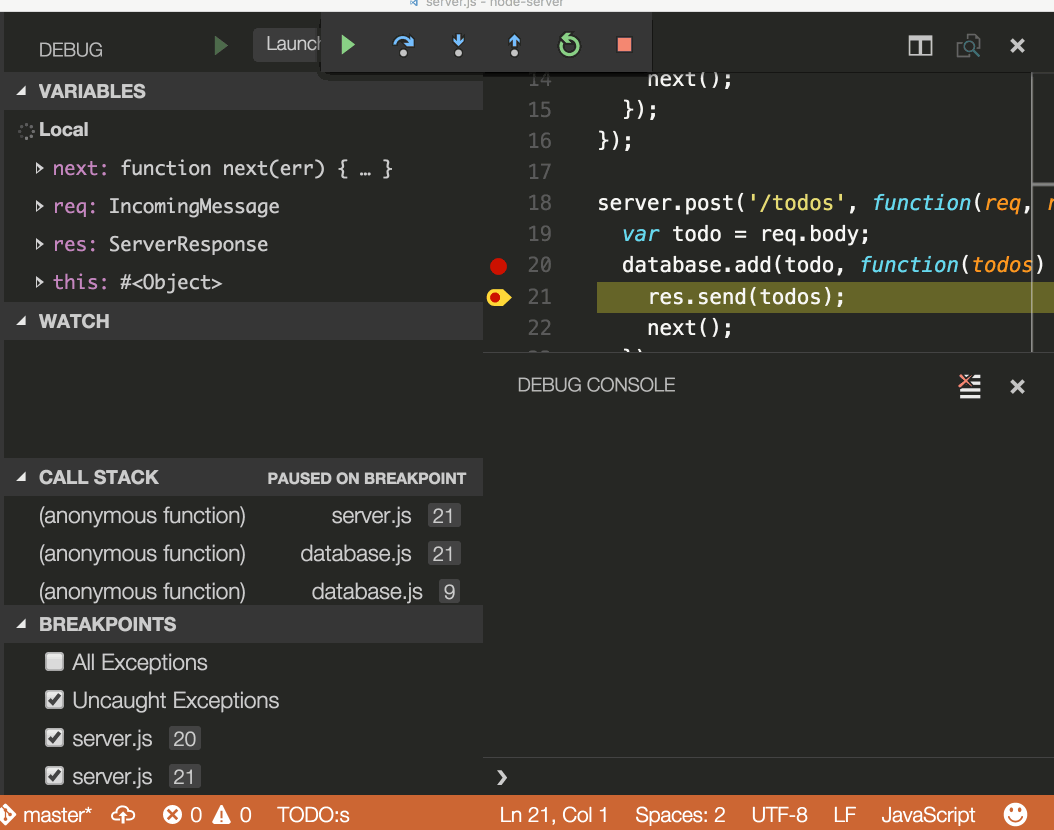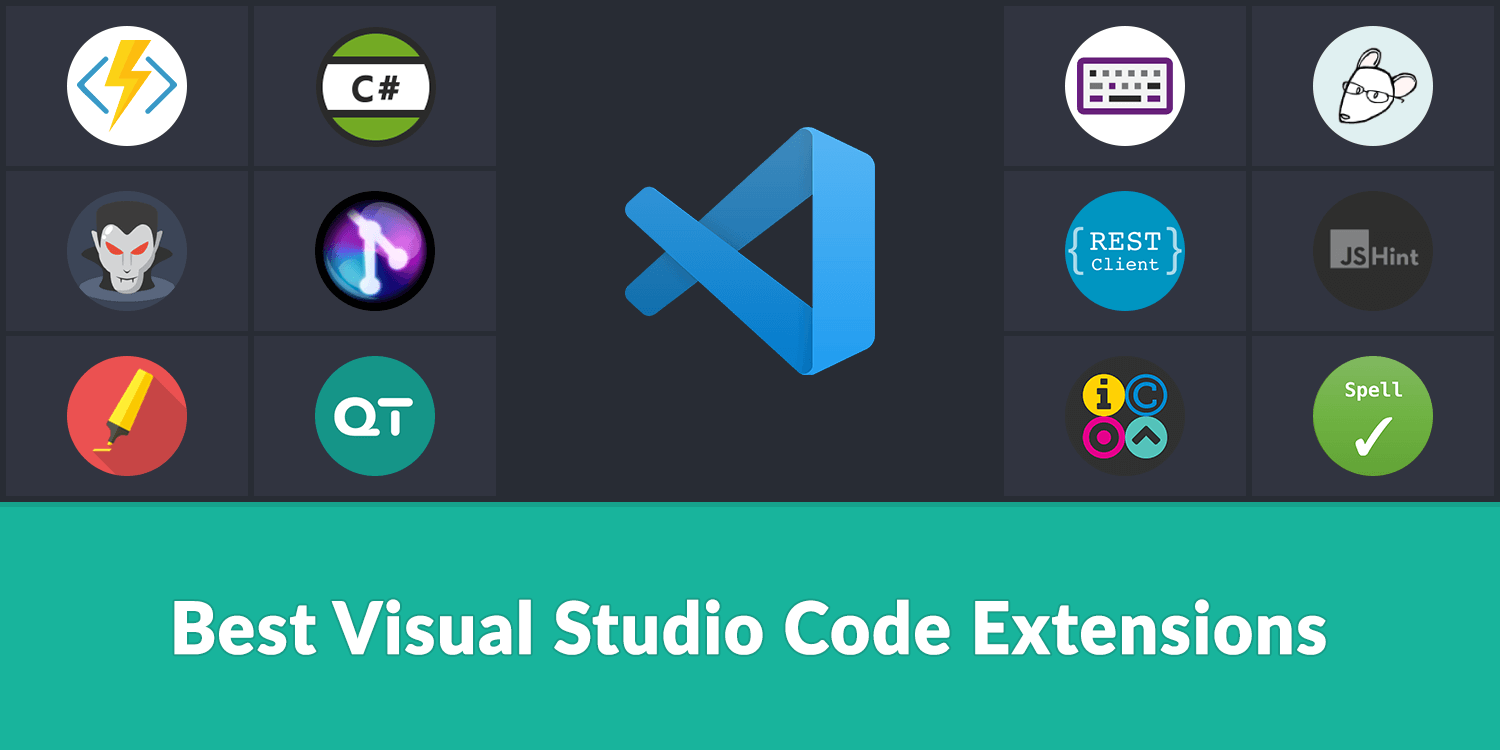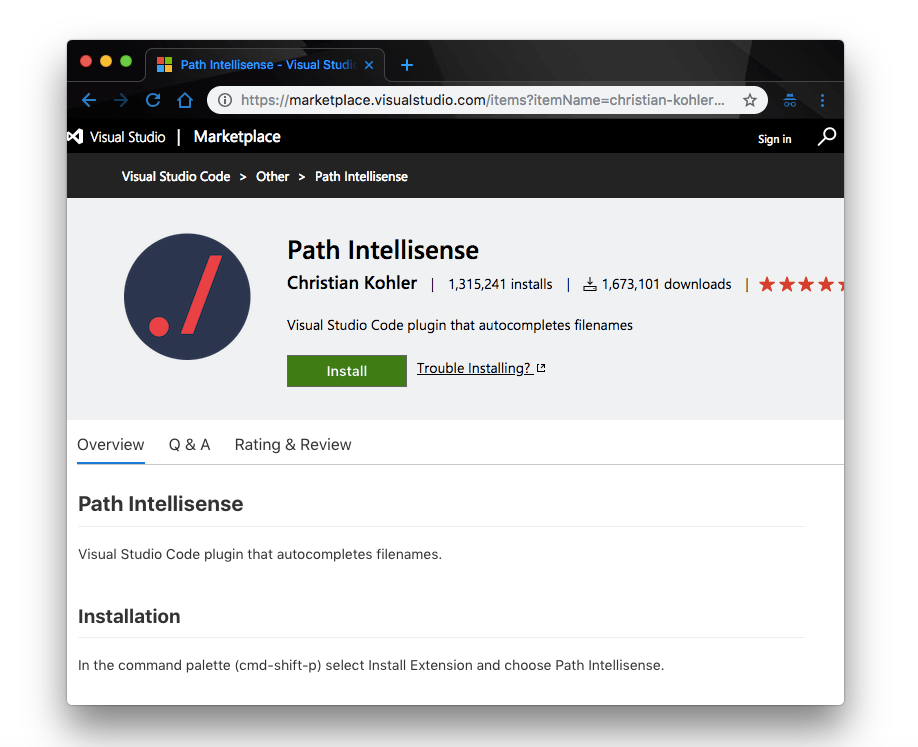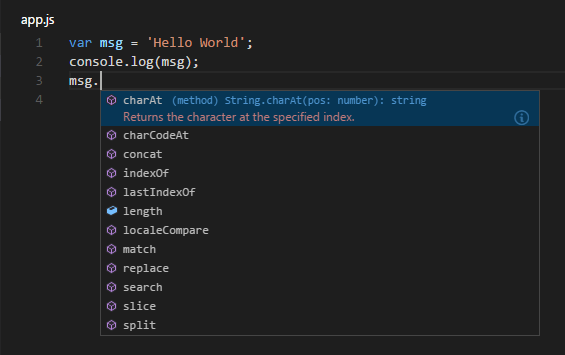- Intellisense Visual Studio Code Javascript
- Intellisense Visual Studio Code
- Visual Studio
- Intellisense Visual Studio Code Not Working C++
- Visual Studio Code IntelliSense is provided for JavaScript, TypeScript, JSON, HTML, CSS, SCSS, and Less out of the box. VS Code supports word based completions for any programming language but can also be configured to have richer IntelliSense by installing a language extension.
- Tailwind CSS IntelliSense does not currently support Yarn Plug'n'Play. If you installed tailwindcss or created your config file while your project was already open in Visual Studio Code you may need to reload the editor. You can either restart VS Code entirely, or use the Developer: Reload Window command which can be found in the command palette.
Go in Visual Studio Code Using the Go extension for Visual Studio Code, you get features like IntelliSense, code navigation, symbol search, testing, debugging, and many more that will help you in Go development. You can install the Go extension from the VS Code Marketplace.
-->In some cases, you might need to manually configure your C++ project to get IntelliSense working properly. For MSBuild projects (based on .vcxproj files), you can adjust settings in project properties. For non-MSBuild projects, you adjust settings in the CppProperties.json file in the root directory of the project. In some cases, you may need to create a hint file to help IntelliSense understand macro definitions. The Visual Studio IDE helps you identify and fix IntelliSense problems.

Single-file IntelliSense
When you open a file that is not included in a project, Visual Studio provides some IntelliSense support but by default no error squiggles are shown. If the Navigation Bar says Miscellaneous Files, then that probably explains why you are not seeing error squiggles under incorrect code, or why a preprocessor macro is not defined.
Check the Error List
If a file is not open in single-file mode, and IntelliSense is not working correctly, the first place to check is the Error List window. To see all the IntelliSense errors for the current source file together with all included header files, choose Build + IntelliSense in the dropdown:
IntelliSense produces a maximum of 1000 errors. If there are over 1000 errors in the header files included by a source file, then the source file shows only a single error squiggle at the very start of the source file.
Ensure #include paths are correct
MSBuild projects
If you run your builds outside of the Visual Studio IDE, and your builds are succeeding but IntelliSense is incorrect, it is possible that your command line is out of sync with the project settings for one or more configurations. Right-click on the project node in Solution Explorer and make sure that all #include paths are correct for the current configuration and platform. If the paths are identical in all configurations and platforms, you can select All configurations and All platforms and then verify that the paths are correct.
To see the current values for build macros such as VC_IncludePath, select the Include Directories line and click the dropdown on the right. Then choose <Edit> and click on the Macros button.
Makefile projects
For Makefile projects that are based on the NMake project template, choose NMake in the left pane and then choose Include search path under the IntelliSense category:
Open Folder projects
For CMake projects, make sure that #include paths are specified correctly for all configurations in CMakeLists.txt. Other project types might require a CppProperties.json file. For more information, see Configure IntelliSense with CppProperties.json. Make sure that the paths are correct for each configuration that is defined in the file.
If there is a syntax error in the CppProperties.json file, IntelliSense in the affected files will be incorrect. Visual Studio will display the error in the Output Window.
Tag parser issues
The tag parser is a 'fuzzy' C++ parser that is used for browsing and navigation. It is very fast but does not attempt to completely comprehend every code construct.
For example, it doesn’t evaluate preprocessor macros, and therefore it may incorrectly parse code that makes heavy use of them. When the Tag Parser encounters an unfamiliar code construct, it may skip that entire region of code.
There are two common ways in which this problem manifests in Visual Studio:
If the Navigation Bar shows an innermost macro, then the current function definition was skipped:
The IDE offers to create a function definition for a function that is already defined:
To fix these kinds of problems, add a file named cpp.hint to the root of your solution directory. For more information, see Hint Files.
Tag parser errors appear in the Error List window.
Validate project settings with diagnostic logging
To check whether IntelliSense compiler is using correct compiler options, including Include Paths and Preprocessor macros, turn on Diagnostic Logging of IntelliSense command lines in Tools > Options > Text Editor > C/C++ > Advanced > Diagnostic Logging. Set Enable Logging to True, Logging Level to 5 (most verbose), and Logging Filter to 8 (IntelliSense logging).
The Output Window will now show the command lines that are passed to the IntelliSense compiler. Here is a sample output:
This information may help you understand why IntelliSense is providing inaccurate information. For example, if your project’s Include directory contains $(MyVariable)Include, and the diagnostic log shows /IInclude as an Include path, it means that $(MyVariable) wasn’t evaluated, and was removed from the final include path.
About the IntelliSense build
Visual Studio uses a dedicated C++ compiler to create and maintain the database that powers all the IntelliSense features. To keep the IntelliSense database in sync with the code, Visual Studio automatically launches IntelliSense-only builds as background tasks in response to certain changes made in the project settings or source files.
However, in some cases Visual Studio might not update the IntelliSense database in a timely manner. For example, when you run a git pull or git checkout command, Visual Studio might take up to an hour to detect changes in the files. You can force a rescan of all files in a solution by right-clicking on the project node in Solution Explorer and choosing Rescan Solution.
Troubleshooting IntelliSense build failures
An IntelliSense build does not produce binaries, but it can still fail. One possible cause for failure is custom .props or .targets files. In Visual Studio 2017 version 15.6 and later, IntelliSense-only build errors are logged to the Output window. To see them, set Show output from to Solution:
The error message might instruct you to enable design-time tracing:
If you set the environment variable TRACEDESIGNTIME to true and restart Visual Studio, you will see a log file in the %TEMP% directory, which might help diagnose the build failure.
To learn more about TRACEDESIGNTIME environment variable, see Roslyn and Common Project System. The information in these articles is relevant for C++ projects.
See also
Visual Studio Code plugin that autocompletes filenames.

Sponsors
Eliminate context switching and costly distractions. Create and merge PRs and perform code reviews from inside your IDE while using jump-to-definition, your favorite keybindings, and other IDE tools.
Learn more
Installation
In the command palette (cmd-shift-p) select Install Extension and choose Path Intellisense.
To use Path Intellisense instead of the default autocompletion, the following configuration option must be added to your settings:
Usage
Node packages intellisense
Use npm intellisense
Contributing

Something missing? Found a bug? - Create a pull request or an issue.Github
Are you a windows user?
There is an issue on windows with the period key. See Issue https://github.com/ChristianKohler/NpmIntellisense/issues/12
Add this to the keybinding:
TsConfig support
BaseUrl
Pathintellisense uses the ts.config.compilerOptions.baseUrl as a mapping. So no need to define it twice. There is no support for paths at the moment.
For example:
would allow to type:
Settings

File extension in import statements
Path Intellisense removes the file extension by default if the statement is a import statement. To enable file extensions set the following setting to true:
Show hidden files
Intellisense Visual Studio Code Javascript
Per default, hidden files are not displayed. Set this to true to show hidden files.
If set to false, PathIntellisense ignores the default 'files.exclude' as well:
Auto slash when navigating to folder
Per default, the autocompletion does not add a slash after a directory.
Absolute paths
Intellisense Visual Studio Code
Per default, absolute paths are resolved within the current workspace root path.Set it to false to resolve absolute paths to the disk root path.
Mappings
Define custom mappings which can be useful for using absolute paths or in combination with webpack resolve options.
Use ${workspaceFolder} when the path should be relative to the current root of the current project. V2.2.1 and lower used ${workspaceRoot}. Newer version support both placeholders.
History
See changelog
License
Visual Studio

Intellisense Visual Studio Code Not Working C++
This software is released under MIT License
